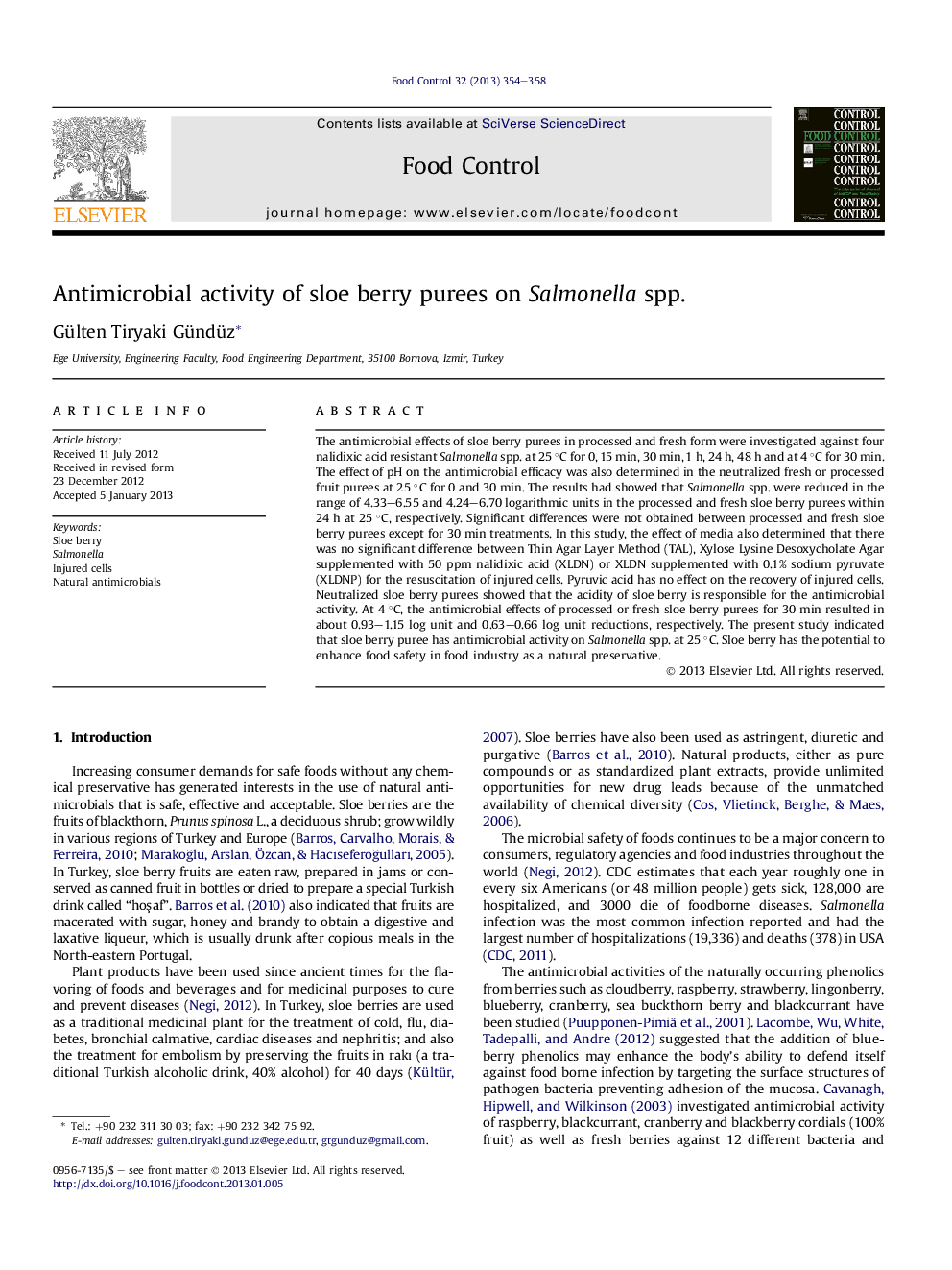| Article ID | Journal | Published Year | Pages | File Type |
|---|---|---|---|---|
| 4559374 | Food Control | 2013 | 5 Pages |
The antimicrobial effects of sloe berry purees in processed and fresh form were investigated against four nalidixic acid resistant Salmonella spp. at 25 °C for 0, 15 min, 30 min, 1 h, 24 h, 48 h and at 4 °C for 30 min. The effect of pH on the antimicrobial efficacy was also determined in the neutralized fresh or processed fruit purees at 25 °C for 0 and 30 min. The results had showed that Salmonella spp. were reduced in the range of 4.33–6.55 and 4.24–6.70 logarithmic units in the processed and fresh sloe berry purees within 24 h at 25 °C, respectively. Significant differences were not obtained between processed and fresh sloe berry purees except for 30 min treatments. In this study, the effect of media also determined that there was no significant difference between Thin Agar Layer Method (TAL), Xylose Lysine Desoxycholate Agar supplemented with 50 ppm nalidixic acid (XLDN) or XLDN supplemented with 0.1% sodium pyruvate (XLDNP) for the resuscitation of injured cells. Pyruvic acid has no effect on the recovery of injured cells. Neutralized sloe berry purees showed that the acidity of sloe berry is responsible for the antimicrobial activity. At 4 °C, the antimicrobial effects of processed or fresh sloe berry purees for 30 min resulted in about 0.93–1.15 log unit and 0.63–0.66 log unit reductions, respectively. The present study indicated that sloe berry puree has antimicrobial activity on Salmonella spp. at 25 °C. Sloe berry has the potential to enhance food safety in food industry as a natural preservative.
► Sloe berry puree has antimicrobial activity on Salmonella spp. at 25 °C ► Salmonella were reduced in the range of 4.24–6.70 log units in sloe berry purees. ► Acidity of sloe berry is responsible for the antimicrobial activity. ► Sloe berry has the potential to enhance food safety.
